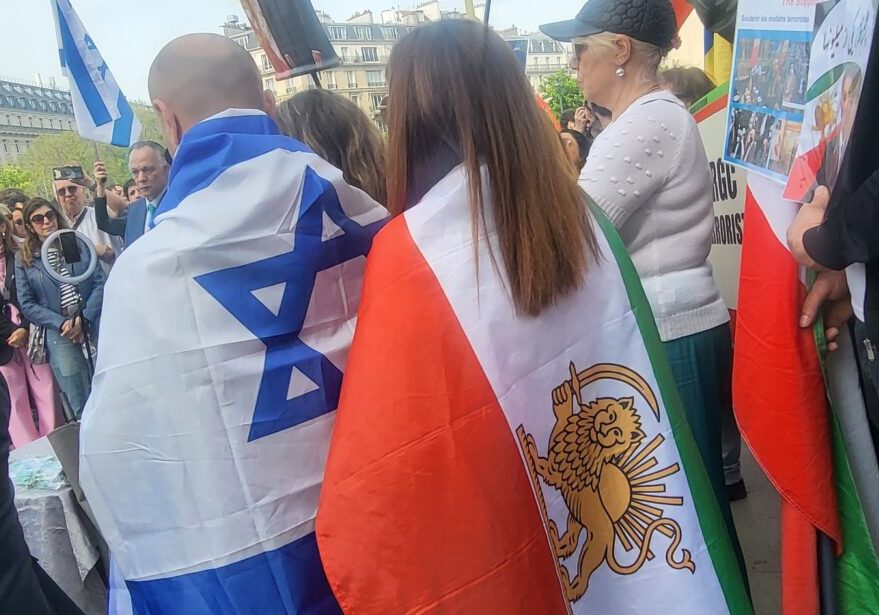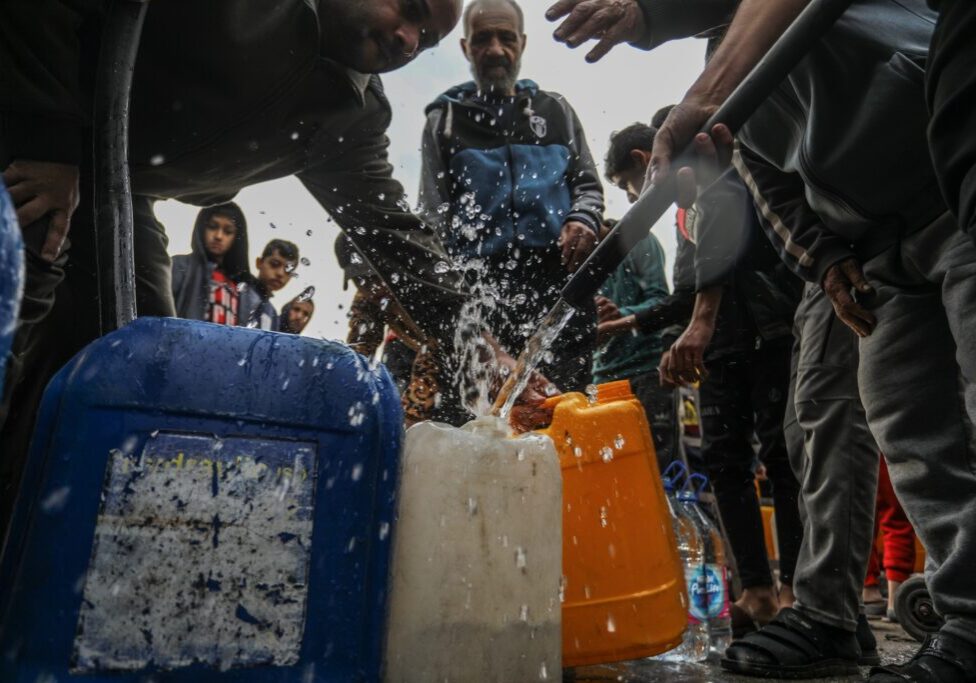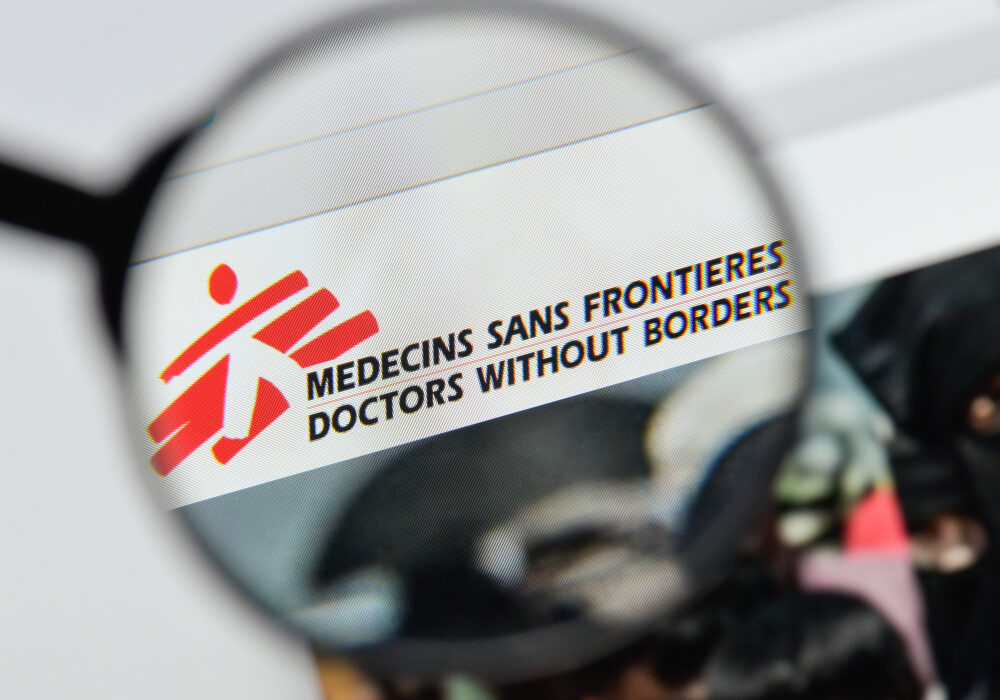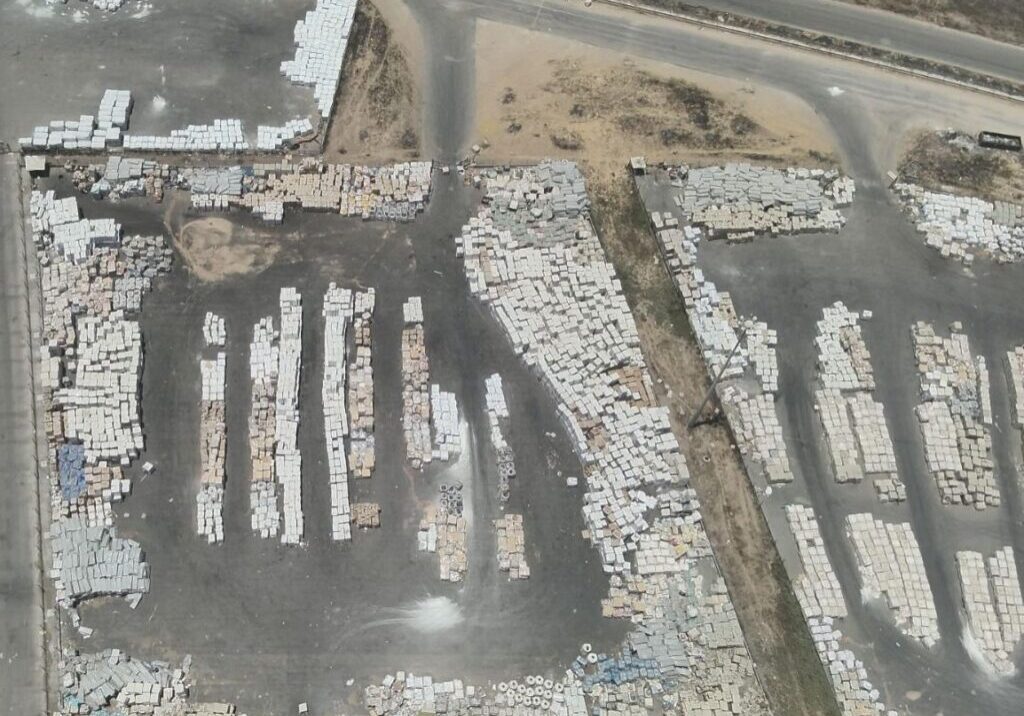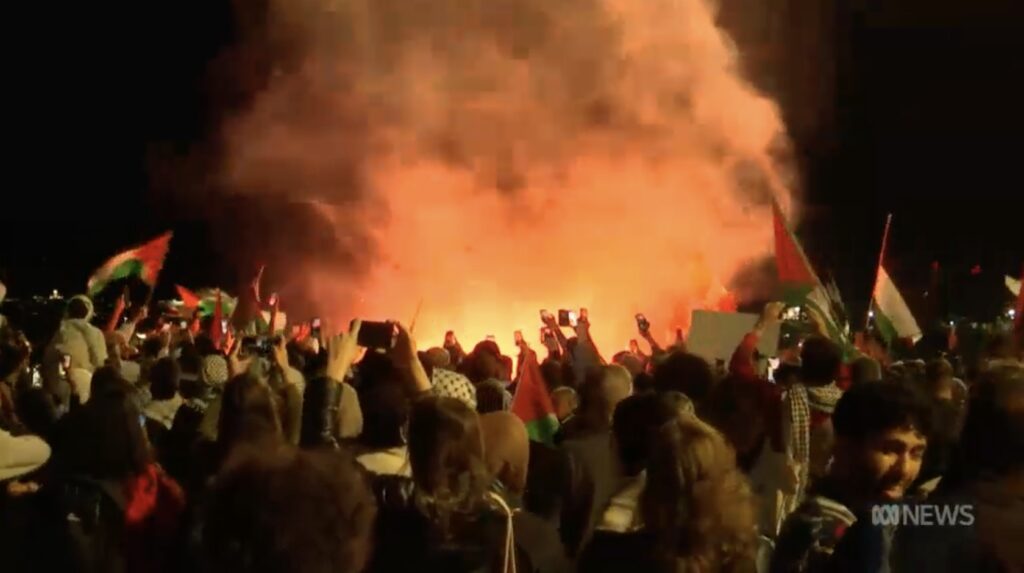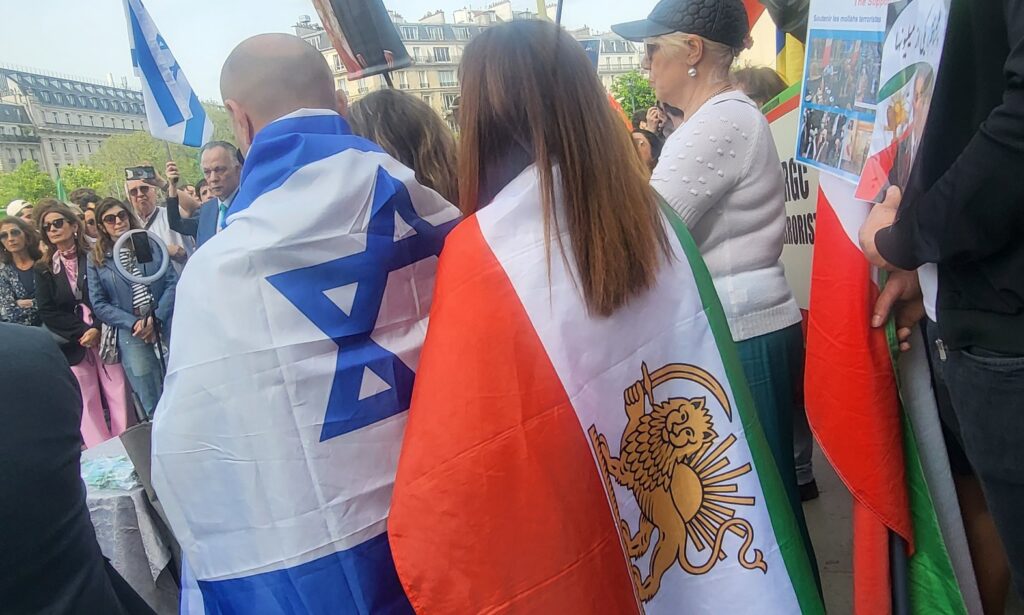FRESH AIR
Sanctioned terrorists and ultra-hardliners – inside the new Iranian cabinet
Aug 25, 2021 | Ran Porat
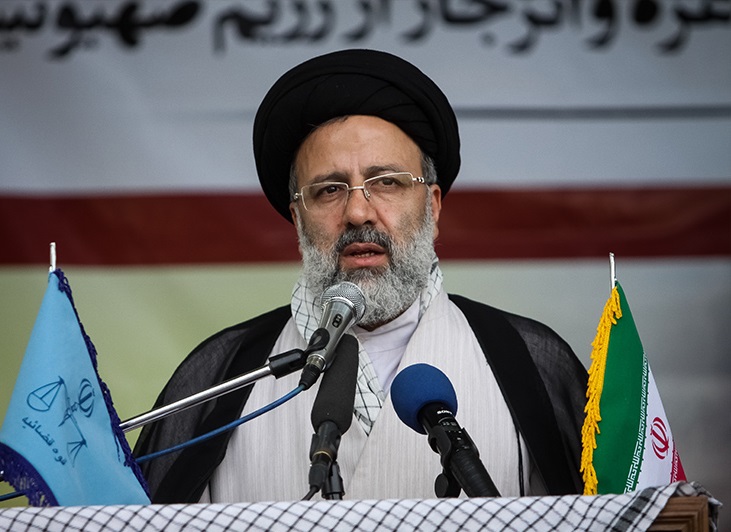
Iran’s newly inaugurated president, Ebrahim Raisi, brought some ugly baggage with him. Known as the “Butcher of Teheran,” he is allegedly responsible for the deaths of thousands of Iranians during mass summary executions in 1988, and other significant human rights violations.
Given Raisi’s background, and his close ties with Supreme Leader Ali Khamenei and the powerful Islamic Revolutionary Guard Corps (IRGC) – which is regarded as a terrorist organisation in the US and other countries – the makeup of his new government is not surprising. His selected cabinet consists of a disturbing collection of corrupt hardliners, terrorists and extremists who collectively leave no hope for positive change either for long-suffering Iranians or the regional victims of Iran’s serial aggression.
Here are a few of the highest-profile examples:
Mohammad Mokhber – First Vice President
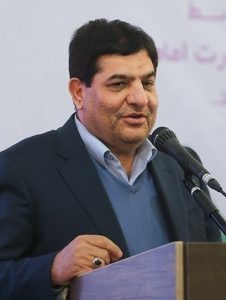
Mohammad Mokhber (credit: Masoud shahrestani)
Mokhber (66) was nominated by Khamenei in 2007 to head the powerful Executive Headquarters of the Imam’s Directive trust (Setad), a huge and influential conglomerate with an estimated almost US$100 billion its coffers. This organisation manages properties confiscated after the 1979 revolution and is under direct control of the Supreme Leader. Both the trust fund and Mokhber are under US treasury sanctions. Mokhber also chaired the board of Sina Bank, and by order of Khamenei, he also set up the allegedly philanthropic Barekat Foundation, a subsidiary of Setad – both also under US sanctions.
Between 2010 and 2012, Mokhber was under EU sanctions for his ties to Iran’s nuclear program and ballistic missiles project.
Shifa Pharmed, one of the companies under Mokhber’s control, manufactures the Barakat – one of Iran’s own coronavirus vaccines. There have been significant questions regarding its safety and efficiency.
Ahmad Vahidi – Interior Minister
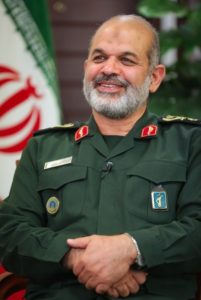
Ahmad Vahidi (credit: Khamenei.ir)
General Vahidi (63) is a graduate of the IRGC and Ministry of Defence and Armed Forces Logistics (MODAFL) – both of which were heavily involved in Teheran’s secret nuclear weapons program. As the first commander of IRGC’s Al-Quds force (1988-1998), Vahidi extended its terrorist reach, most notoriously overseeing the 1994 bombing of the Jewish community building in Buenos Aires, the Argentine Israelite Mutual Association (AMIA). For his role in that deadly attack, which left 85 people dead and injured hundreds, he has been wanted in Argentina since 2007, and there is an INTERPOL Red Notice calling for his arrest which remains in effect.
Vahidi later served as Defence Minister (2009-13) under Holocaust-denying Iranian President Mahmoud Ahmadinejad. In Raisi’s government, he is expected to chair the National Domestic Security Council (NDSC) – a body that is in charge of crushing internal dissent.
Vahidi is also under EU and US sanctions, although some of the restrictions applied against him were scheduled to be cancelled under the 2015 nuclear deal (JCPOA).
Mohsen Rezaei – VP for economic affairs
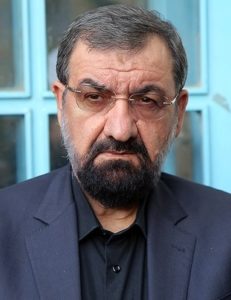
Mohsen Rezaei (credit: Mohammad Ali Marizad)
A former Islamic Revolutionary Guard Corps commander-in-chief (1981-1997), Razaei (67) is a hardliner affiliated with the fundamentalist Resistance Front of Islamic Iran movement. He was the secretary of the Expediency Discernment Council, the body mediating disputes between the Majlis (parliament) and the powerful Council of Guardians, made up of Khomeinist Muslim scholars. Rezaei has run for President in several elections campaigns (2005, 2009, 2013). In 2019, he said that Iran will capture US President Donald Trump and put him on trial for crimes against Iran and other nations.
Rezaei has been wanted by Argentina since 2006 and by Interpol since 2007 for his role in the 1994 AMIA bombing in Buenos Aires. According to his son Ahmad, Razaei was also behind the 1992 attack on the Israeli embassy in Buenos Aires. Ahmad Rezaei defected to the US in 1998 but later returned to Iran before dying in suspicious circumstances in Dubai in 2011.
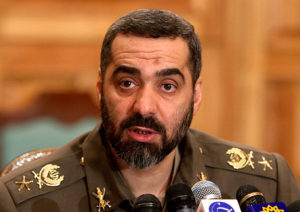
Brigadier General Mohammad Reza Qaraei Ashtiani (credit: Sajad Safari)
General Mohammad Reza Ashtiani – Defence Minister
Prior to taking office as Defence Minister, Ashtiani’s last role was deputy chief of staff of Iran’s Armed Forces (Artesh). He has been under US Treasury sanctions since Jan 2020 for his control (with others) over billions of dollars funding the regime’s nuclear and missile programs and Iranian proxies across the Middle East.
Hossein Amir-Abdollahian – Foreign Minister
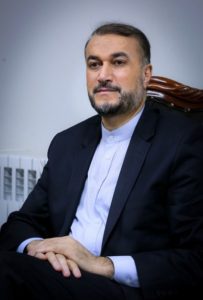
Hossein Amir-Abdollahian (credit: khamenei.ir)
Amir-Abdollahian (57) is a career diplomat with extensive experience in foreign ministry roles within Iran and in neighbouring countries, as well as negotiations vis-à-vis European and even US officials, including regarding the nuclear issue. He has strong ties to the IRGC.
A hardliner and a Khamenei loyalist, he is also well connected to Hezbollah and was a close associate of arch terrorist IRGC Quds Force commander, Qassem Soleimani, killed by the US in January 2020.
Amir-Abdollahian was also Secretary-General of the International Conference in Support of the Palestinian Intifada, and an advisor to the Secretary-General of the AhlulBayt World Assembly on Middle East Affairs – Teheran’s international Shi’ite organisation dedicated to spreading the theological ideas of Ayatollah Ruhollah Khomeini, which is active in Australia.
Esmail Khatib – Intelligence Minister
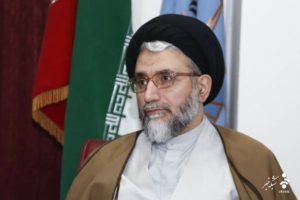
Esmail Khatib (credit:
M. Hanif Jazayeri’s Twitter)
A devout Shi’ite scholar and a hardline ideologue, Khatib had, since 1980, been a member of the IRGC’s intelligence service (which is in constant competition with other Iranian intelligence organisations, especially the Intelligence Ministry). He was later the counter-intelligence chief of Iran’s judiciary and has worked with Raisi for almost 20 years.
A Khamenei loyalist, Khatib filled positions in the Office of the Supreme Leader, as the director of the Protection and Information Centre of the judiciary, and as head of Astan Quds Razavi’s Security Department, which has been under US treasury sanctions since 2020.
Mohammad Mahdi Esmaili – Culture and Islamic Guidance Minister
Esmaili was a former cultural advisor to Raisi during his time as judiciary chief (2019-21). His upcoming appointment has been met with harsh criticism and fear from across the arts sector in Iran.
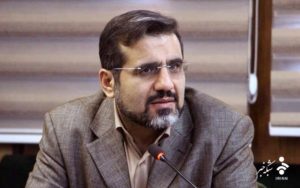
Mohammad Mahdi Esmaeili (credit: M. Hanif Jazayeri’s Twitter)
The Culture and Islamic Guidance Ministry is a powerful regime tool in stifling freedom of expression, with the authority to license almost all art forms, including films, music, books etc. The ministry enforces a “revolutionary” narrative on the arts, and censures any criticism of the regime.
In his agenda for the ministry, Esmaili blasted Iranian cinema for not supporting the regime, while arguing that Iranian movies present “immoral” women in a positive light. According to Esmaili, the ministry has been too lax in issuing licenses to “non-revolutionary” films,. He also labelled the Khaneh Cinema, the biggest union of Iranian filmmakers and artists, as illegal.
Esmaili also attacks Iran’s music industry for allowing local rock and heavy metal bands to release music. He called on the music industry to counter the activities of Iranian artists in exile (most of whom oppose the regime).
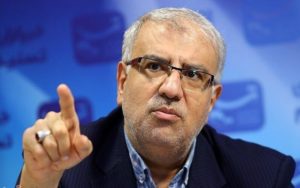
Javad Owji (credit: M. Hanif Jazayeri’s Twitter)
Javad Owji – Oil Minister
Formerly deputy Oil Minister, Owji (54) filled several bureaucratic roles at Mokhber’s foundation, the Executive Headquarters of the Imam’s Directive trust (Setad), and has also worked with the notorious and powerful Mostazafan Foundation. His position as a senior executive of the Sina Energy Development Company means that he is also under US Treasury sanctions.
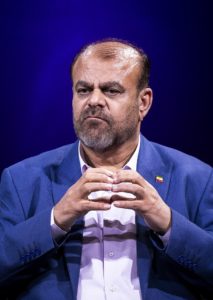
Rostam Qasemi (credit: Saeed Sajadi)
Rostam Qasemi – Minister of Roads and Transport
A former IRGC officer, Qasemi (57) was the chair of the IRGC’s construction conglomerate Khatam-al Anbiya (2007-2011). He served as Ahmadinejad’s oil minister from 2011 to 2013.
For his involvement in the nuclear program, Qasemi has been on US and EU sanctions lists since 2010.
Bahram Eynollahi – Health Minister
An optometrist by profession, Eynollahi (63) signed an open letter in January warning against Iran using imported vaccines made by the US, UK, or France, because they could allegedly cause “unknown and irreversible complications.”

